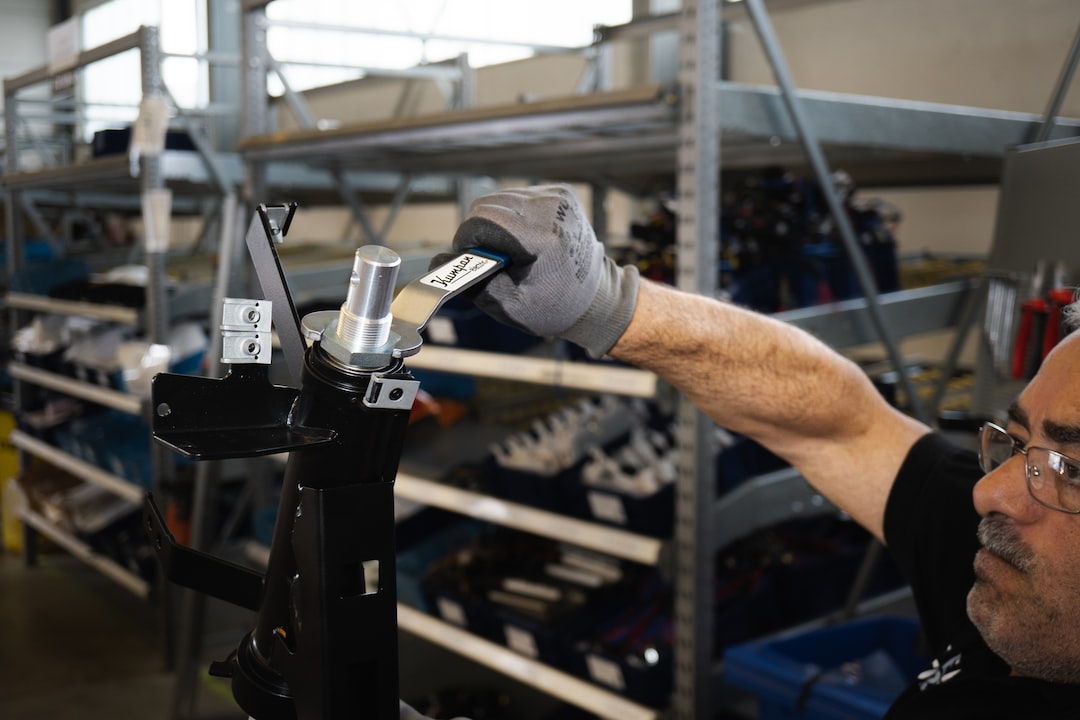Title: The Impact of Artificial Intelligence on Manufacturing Efficiency
Introduction
In recent years, the advancement of artificial intelligence (AI) has revolutionized various industries, and manufacturing is no exception. AI, with its ability to quickly process vast amounts of data, analyze patterns, and make informed decisions, has become a driving force behind increased manufacturing efficiency. In this blog post, we will delve into the significant impact AI has had on manufacturing processes, exploring its benefits and potential challenges.
1. Automated Predictive Maintenance
One of the key areas in which AI has transformed manufacturing efficiency is predictive maintenance. Traditional maintenance practices often result in either over-maintenance, leading to unnecessary downtime, or under-maintenance, leading to equipment failure and costly repairs. AI technology allows manufacturers to collect real-time data from equipment sensors and analyze it to predict potential failures. By identifying trends and patterns, AI systems can detect anomalies and notify maintenance teams before any significant breakdown occurs. This proactive approach to maintenance reduces unplanned downtime, optimizes manufacturing schedules, and ultimately increases productivity.
2. Quality Control and Defect Detection
Quality control is a crucial aspect of manufacturing that can make or break a company’s reputation. AI has produced remarkable results by revolutionizing defect detection through smart algorithms and machine vision systems. These systems can identify defective products at an exceptionally high speed and level of accuracy. AI-powered visual inspection systems can quickly assess multiple product characteristics, such as size, shape, color, and surface defects. By automating this process, manufacturers can significantly reduce human error, improve product consistency, and enhance overall quality.
3. Improved Supply Chain Management
AI has revolutionized the way manufacturing companies manage their supply chains. By leveraging AI algorithms and intelligent predictive analytics, manufacturers can optimize inventory levels, streamline production schedules, and improve order fulfillment. AI-driven software can analyze data from different sources, including sales history, supplier reliability, and market trends, to accurately forecast demand. Manufacturers can use this information to make adjustments in real-time, ensuring the availability of raw materials, reducing excess inventory, and minimizing stockouts. As a result, companies can efficiently meet customer demands while cutting costs and achieving higher customer satisfaction levels.
4. Enhanced Production Line Operations
AI technologies, such as robotics and machine learning, have transformed production lines in numerous ways, increasing manufacturing efficiency. Robots with AI capabilities can perform repetitive and physically demanding tasks with precision, freeing up human workers to focus on more value-added activities. These robots can also collaborate with human workers, enabling co-bot systems and enhancing productivity and safety. Furthermore, AI-powered machine learning algorithms can analyze historical data to optimize production parameters, leading to maximum output while maintaining quality standards. By integrating AI into the production line operations, manufacturing companies can achieve higher throughput, reduced operational costs, and improved overall efficiency.
5. Workforce Optimization and Skills Enhancement
Contrary to popular belief, AI technology does not replace human workers in manufacturing; rather, it complements their skills. As AI automates repetitive and mundane tasks, workers can be upskilled to take on more complex responsibilities. AI-powered training simulations can help workers enhance their skills, ensuring they keep up with technological advancements. Additionally, AI-driven systems can analyze the performance and activity patterns of workers, enabling manufacturers to optimize labor allocation, reducing idle time, and improving overall workforce productivity. By utilizing AI to optimize the workforce, manufacturers can unlock the full potential of human capital and achieve higher efficiency levels.
Conclusion
The impact of artificial intelligence on manufacturing efficiency cannot be overstated. From automating predictive maintenance to enhancing quality control, supply chain management, production line operations, and workforce optimization, AI has revolutionized manufacturing practices in countless ways. The benefits of AI in manufacturing are compelling, including increased productivity, improved product consistency, optimized resource allocation, and enhanced customer satisfaction. Nonetheless, integrating AI solutions may present certain challenges, such as initial investments, data privacy, and the need for upskilling the workforce. Nevertheless, with proper planning and implementation, the symbiotic relationship between AI and manufacturing holds great potential for unlocking unparalleled efficiency gains in the manufacturing industry for years to come.

